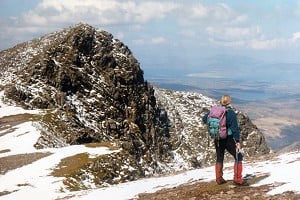
January 2022 saw the tenth Montane Spine Race, won this year by Eoin Keith for the men (in a time of 92hrs 40mins) and Debbie Martin-Consani for the women (104hrs 8mins). Generally considered Britain's toughest ultra endurance event, the Spine follows the entire 429km (268-mile) course of the Pennine Way from Edale to Kirk Yetholm, in mid winter. On top of the sheer distance, competitors have to contend with cold, stormy weather, the full gamut of winter ground conditions from mud to snow and ice, long hours of darkness, and sleep deprivation.
This year's race saw typically harsh weather, and thanks to the damage caused some weeks earlier by Storm Arwen a short section of the route through a devastated Kielder Forest had to be bypassed by bus. With an entry list that read like a who's who of top ultra runners, both the men's and the women's race was hard to call ahead of time. But a high rate of attrition whittled down the front runners.
Following the drama of leader Sabrina Verjee's retirement on day 2, Debbie Martin-Consani - who'd finished the 2020 race as the second female over the line - unexpectedly found herself in the lead, a position she then managed to maintain to the finish.
So what is it like to run for several days on minimal sleep? How did she prepare, mentally and physically? And what's the secret to the holy grail of blister-free feet? We caught up with Debbie to find out more:
The last two miles on the road were horrific; I thought I was going to have to DNF with half a mile to go
UKH/UKC: There were some big hitters in this year's event, including Anna Troup and Sabrina Verjee. How does this weigh on your mind going into such an event, and does it influence your tactics?
Debbie: It took the pressure off me. I was quite happy to fly under the radar and just do my own thing. The plan was always to go back, with learnings from 2020, and do the best I could. My focus was very much on overall experience, self-management and finishing time. Although in a race like The Spine you can't compare year-to-year, as external factors have a significant impact on time. As always, I just set out at a pace comfortable for me and was confident I'd pick my way through the field.
When you're dot-watching you have a good idea of where everyone is and how they're doing. But when you're actually in the race are you aware of where others are and what's going on?
Nope - I was in my own little bubble, which is exactly where I wanted to be. I knew whatever I was doing, I was doing my best. Just working in my low gears. You can't go into an event like that and start 'racing' from the gun, as that wouldn't end well. I knew what was going on ahead in the event, as volunteers in checkpoints and photographers out on the course were talking about it - especially when the favourites started dropping out, as there was widespread shock in the men's race as the lead kept changing. I was rarely aware what was happening behind me and I didn't know my overall position in the race until the latter stages.
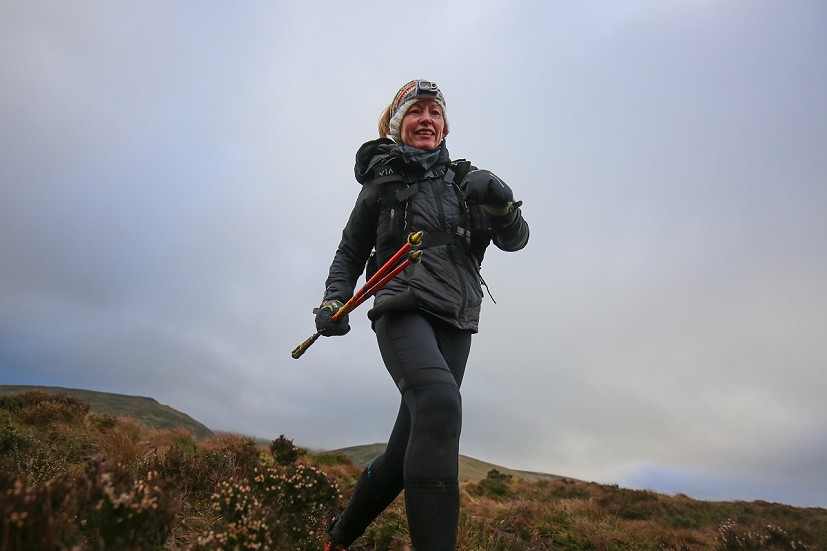
This year's race had a high attrition rate among folk that could have been expected to do well. How do you account for that?
That's just the nature of the things when the field is staked. I wouldn't like to speculate, but it could be pressure, pacing or mindset. Or pace/competitive induced injury. Most of the favourites had also done some chunky FKTs over the summer and lockdown, so there must have been underlying fatigue and niggles going into the race.
You finished second in 2020, but this time following Anna's exit at Snake Pass and Sabrina's at Horton, you took a commanding lead. How was it being out front, compared to chasing a leader - was it nice to have the buffer of a bit of space between you and Elaine or did it make you feel chased down yourself?
I found it really unsettling. I wasn't expecting to have so much pressure on me. And certainly not on Monday lunchtime. It really changed my mindset to being less about me and more about whatever other people were doing, which I really wasn't enjoying. It took me a good 24 hours to shake the crazy and go back to focusing on my overall race plan, which was self-management and forward progress.
Elaine is an amazing badass athlete and Mum of three. Fierce, resilient and unfortunately for me, unrelenting. I was always aware that she wasn't far behind. If I'd taken my foot of the gas or slept for too long she would definitely have overtaken me.
Cross Fell is a hostile place at the best of times. I was going into my third night on about 20 minutes sleep, and kept going off course. Navigation was so tough in the fog and ice
In the pictures and video clips it seems you had a smile on your face throughout. You always seem to have a positive attitude - is this the case or do you have low moments in between? If so, how do you cope with these?
I was genuinely just loving it. I was happy and content and enjoying the journey for the vast majority, but did have a few major lows. It's unrealistic to think that wouldn't happen. But from experience, I could accept this and handle these situations better. I just don't see the point in training for months and spending a small fortune to be miserable all the time; it's the Spine Race, not cocktails on the beach. It's what I signed up for, so I embraced it. Good and bad.
What were the highest high points and lowest lows?
The sunset on High Cup Nick was amazing! More so, because when I got there much later in the day in 2020 I was in a bit of a mess: I'd got lost in the snow – after Storm Brendan - and got so cold and disorientated. This year it was so nice to enjoy the stunning sunset feeling good and in a great frame of mind.
The first low point was on Cross Fell, when I was going into my third night on about 20 minutes sleep. I was so tired and kept going off course, and just couldn't get my brain into gear. Navigation was so tough in the fog and ice. Cross Fell is a hostile and desolate place at the best of times. That's why there's a weather station there! Progress was slow and arduous: The 10 miles from summit to the next checkpoint in Alston was a real struggle. I was falling asleep on my feet and hallucinating; it seemed to take forever. I was so thankful for two hours sleep in the hostel. Actually, I set my alarm for an hour, but fell asleep again for another hour by accident. I was raging with myself, but soon realised it was really needed.
By far the lowest was when my back had gone on The Cheviots. My finishing lean has been the topic of many conversations. I'm not sure if it was the weight of the pack, the excessive demands on my body, lack of sleep or nutrition/hydration, but it was excruciating. I kept having to take my pack off and lie down on the grass just to get some relief. The last two miles on the road were horrific; I thought I was going to have to DNF with half a mile to go. I still can't watch my finishing video as it's makes me wince!
Are you feeling any better after a few days of recovery?
As soon as I took my pack off it started to get back. I'm still not really sure why it happened, but I'm sure I never want it to happen again. It was pretty scary not being able to coordinate my muscles and legs. In my head I was standing straight at the finish. The pictures tell me otherwise!
For me the darkness is by far the hardest aspect, way tougher than the distance or the elements
The weather is always going to be a challenge on this event, but the buildup to this year was particularly wild. The bus section to avoid a devastated Kielder sounds novel! How did the aftermath of Storm Arwen affect runners' experience of the course?
Yes, we can have everything from named storms, snow, ice, mud and glorious sunshine. One thing that's guaranteed is that those slabs will be treacherous. This year, prior to the race storm Arwen took down a lot of the trees around forestry tracks and trails. There was a four-mile extra detour from Hadrian's Wall, probably the most arduous 'trails' to tackle. Then from Bellingham to Byrness there was no option but to bus or taxi runners to the foot of The Cheviots, taking 11 miles from the overall total mileage. I only minded because it's Landrover tracks and probably the only runnable miles on the course. As I've completed the race before, it didn't bother me. I'm sure newbies might have felt cheated or short-changed, but there was no other option.
Once you'd got going, how were the weather and ground conditions this year?
On the first day there was a lot of snow and the second it rained most of the night and day. There was fog and ice around Dufton and Alston on Tuesday. But Wednesday and Thursday were glorious! It was nice knowing the 'bad' weather was front loaded and it was only to get better as the week went on. Unlike last time when I knew the storm was going to hit on Monday night and the snow would follow. Overall, in Spine terms, the weather was very favourable. Again first-timers might have felt cheated. Not me! I've served my time out there in Storm Brendan [2020].
How do you go about physically preparing for The Spine - what sort of time, mileage and terrain do you try to take in during the lead-up?
I probably didn't do as much specific (heavy pack) training as I did for the 2020, although I've been running for 20 years and run around 3500-4000 mile per year, so there's plenty of conditioning in my legs. In the lead up to the race, I just went out on some boggy hills in the dark with a heavy pack. To be honest, the training is quite grim!
What's your usual stomping ground for hill running?
I live in Glasgow, so there are plenty of options around me. The Kilpatrick Hills outside Glasgow are quite similar to the Pennine Way – boggy, wet and lots of mud. I'm only 90-minute drive to Glencoe and two hours to the Lake District, so lots to choose from.
Eat, sleep or move! Don't just sit in checkpoints staring into an abyss
Your husband Marco is an accomplished runner too. Each staying on top of your game must require a big time commitment from you both: how do you coordinate this between you in addition to jobs and parenting?
We both work long hours, but we make it work. There's a lot of juggling. Our son Cairn also seem to be at a club every day of the week, so one of us is the taxi driver too. It's actually easier because we both run. There's no guilt or disgruntled spouses as we both respect and appreciate what is involved in training and competing.
It's obviously a tough event to finish, let alone to win, and having the will to do it again must take some determination. What made you want to come back to The Spine?
Even now I still can't articulate why I wanted to go back for a second time. I just knew in my heart I had unfinished business. It wasn't redemption because I was so pleased with my finishing time and position in 2020. I just wanted to go back and do the best I could. Plus, as a previous competitor I could be less cautious, although finishing was still my primary goal. I did think it would be tougher the second time because I had already completed, and I didn't think I'd have the same motivation and resilience to pull though the dark times. But it was actually easier, because I was more content and accepting of the tough stages.
As well as the weather and sheer distance, there's a lot of running in the dark: how do you cope with that?
For me, the darkness is by far the hardest aspect, way tougher than the distance or the elements. It's tough to navigate and slow-going as there's no trajectory. Plus, I knew I was missing out on some great views! It's all part and parcel of the event though, and does make me really appreciate daylight. In 2020 I kept going into checkpoints in daylight and wasting precious hours. Thankfully this time I was ahead of previous schedule.
Sleep deprivation isn't something many people could cope with, particularly combined with the sustained output and concentration. How are you able to function for so long, on so little sleep?
I had less that three hours sleep across the four nights. It's quite amazing how little sleep you need to get through it though. Adrenaline helps a lot. Even a 20 minute nap can make a world of difference.
Were there any other tips, tricks or kit that particularly helped you along the way?
Eat, sleep or move! Don't just sit in checkpoints staring into an abyss; I do this a lot. Sort things that arise straight away. I waited too long to eat, change gloves, put on waterproofs until it was too late. Don't shit quit. It's going to get real tough. Everything short of an injury can be sorted.
Foot care is a big deal throughout The Spine. How did you look after yours?
I managed to survive both Spine races without blisters or any foot problems. Even the medics were amazed! For perspective, I did the autumn 100 mile trail race in October and my feet were a car crash. I'm not blessed. My Spine foot routine is fairly simple: My secret weapon is Elizabeth Arden 8 Hour Cream, thin merino socks, and then knee-length Dexshell socks. I repeat this at every checkpoint.
Can you give us a quick list of the footwear, clothing and kit you took with you?
Lots of thin layers rather than bulky thick kit. Waterproof trousers when it's raining are a must, or rain runs down leggings and pools in waterproof socks. Montane Spine Jacket - does what it says on the tin [Ed. Look out for our review soon]. Minimus Trousers. Always have a down jacket - waterproofs won't keep you warm, I learned that on Tor des Geants. Long length Dexshell waterproof socks.
Now that you've had some time to recover, have thoughts turned to future events: if so, what's next for you?
I've applied for Badwater 135 in Death Valley in July. Safe to say, I like extremes

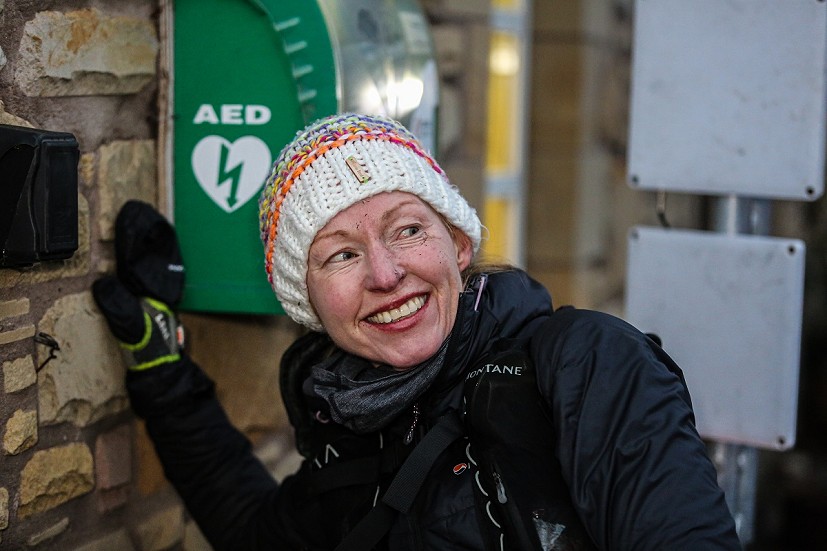
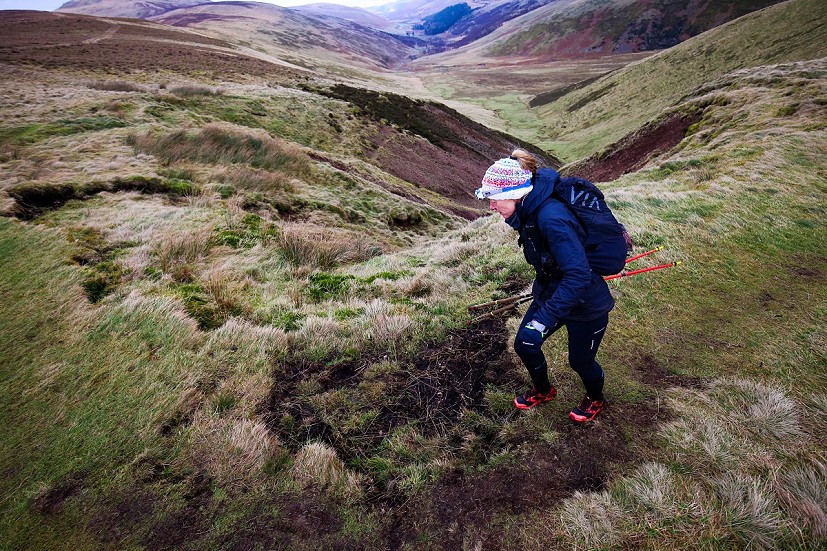
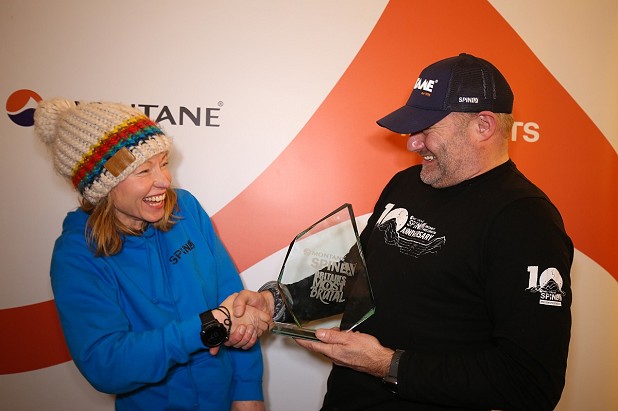
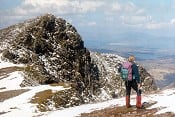


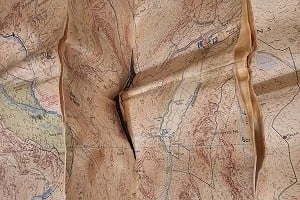
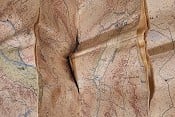

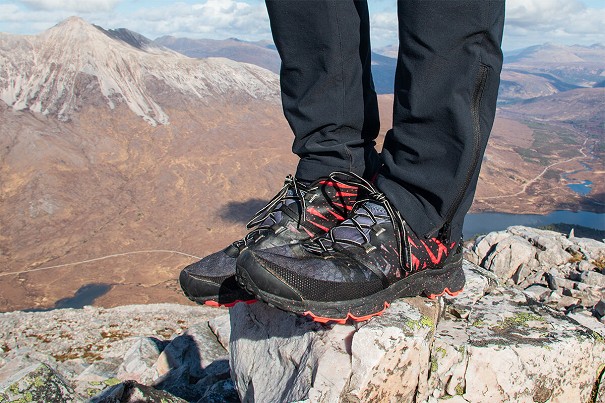
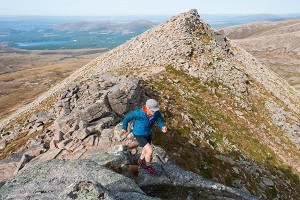
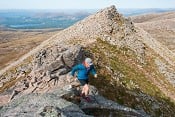
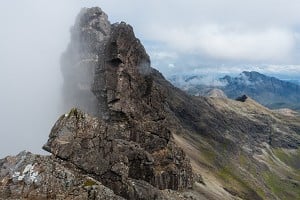
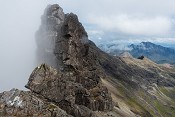
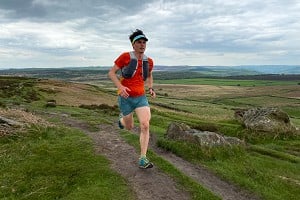
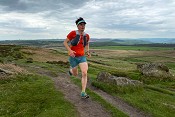
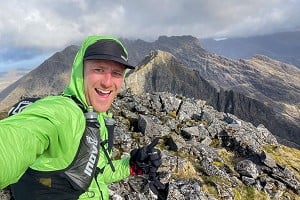
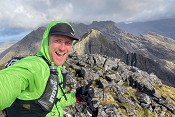
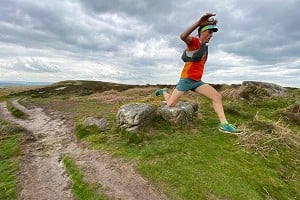
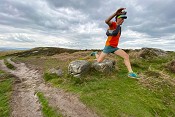
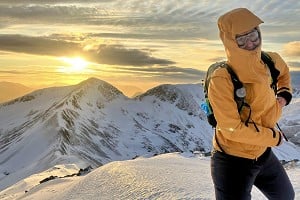
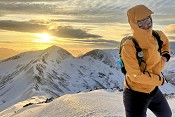
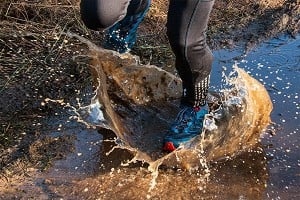
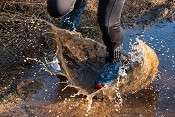
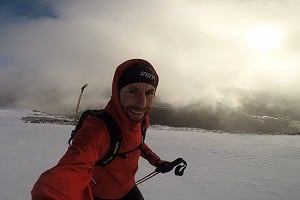
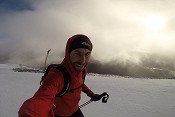
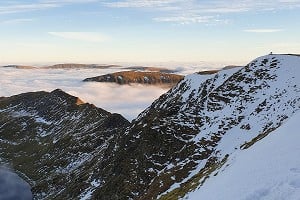
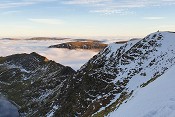
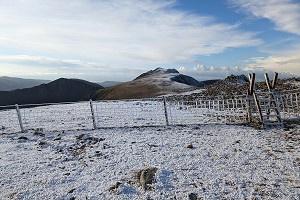
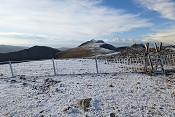
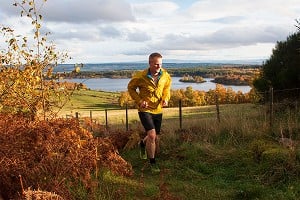

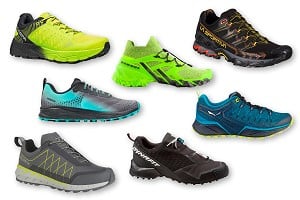
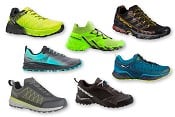
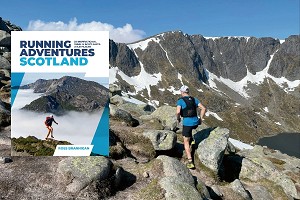
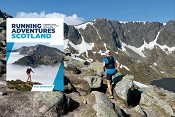
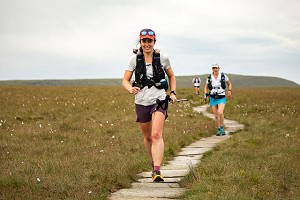
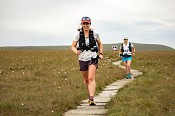
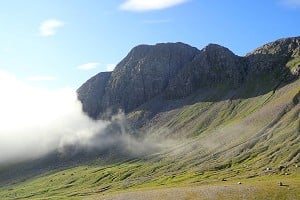
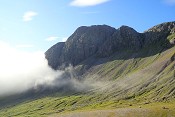
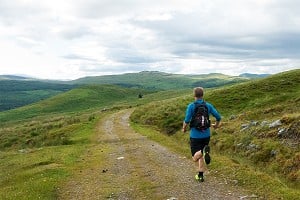
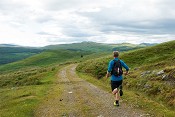
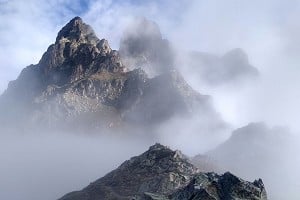
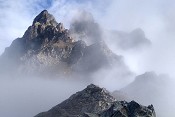
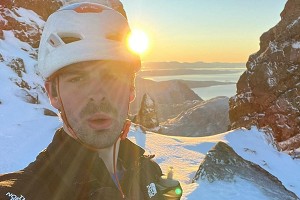
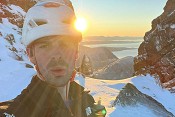
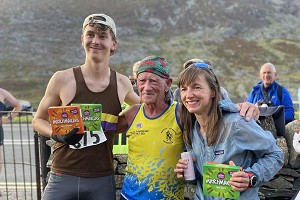
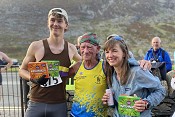
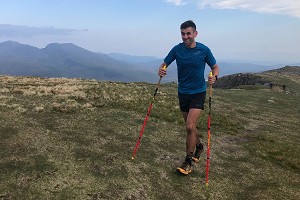
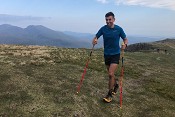
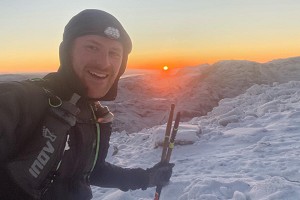
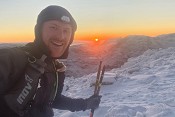
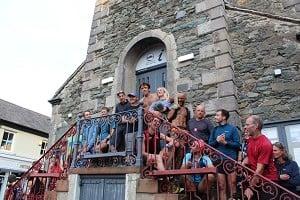
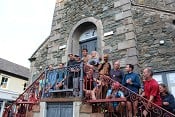
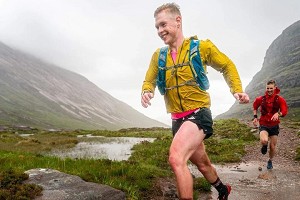
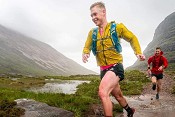
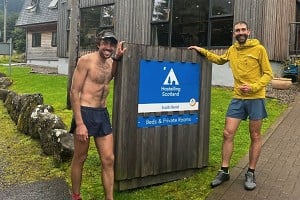
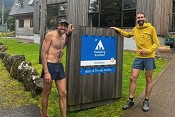
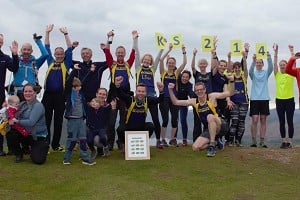
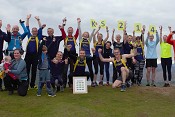
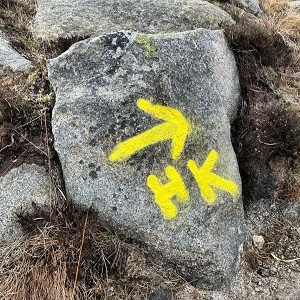
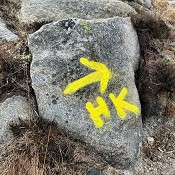
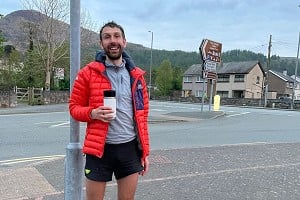
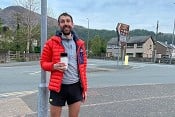
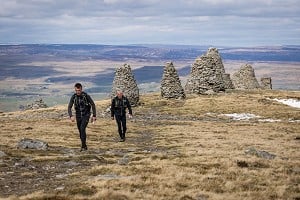
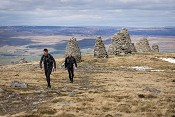
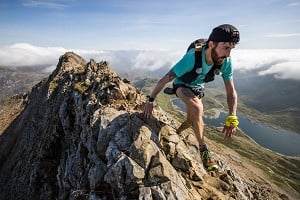
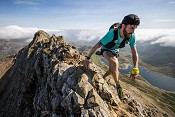
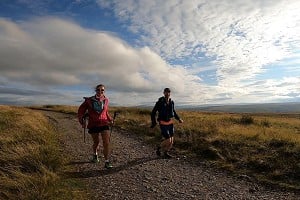
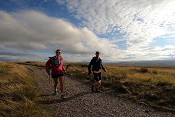
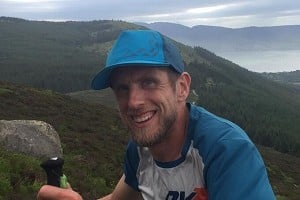
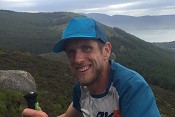
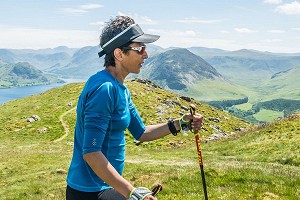
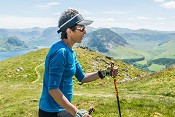
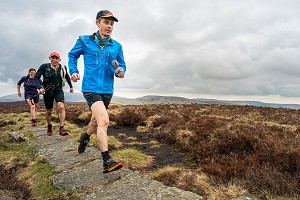
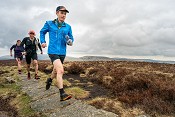
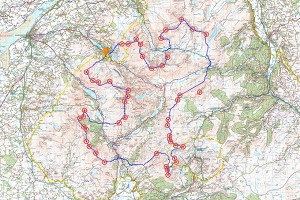
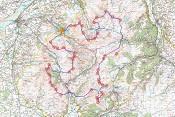
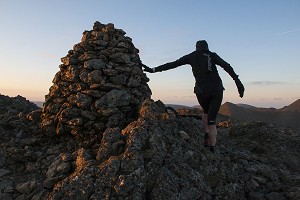
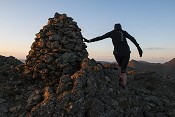
Comments
I'm interested to know what sort of time these guys run over shorter distances, i guess they are also insanely fast over half and marathon distance? or is it a really specialist thing and their real talent is being able to navigate and endure tough conditions? What would happen if you tried to train one of those elite sub 2:15 marathon runners to have a go at this, where would they struggle, the distance, the terrain?
I wouldnt have thought the two really correlate. 1/2 marathon is distance running, marathon is long distance, this is long long long distance attrition races.
It's probably the same as Usain bolt being good over half marathon... he may be because he is fit but it's chance rather than related....
...maybe
DMC does marathons in 3.15-3.33ish, and halfs in 1.35ish, so decent, but not spectacular. I've beaten her in a 10-mile road race, but I couldn't imagine taking on the ultras she does. I think a bit part of her running must be her ability to accept long periods of pain and exhaustion - that takes a special kind of person.
Check this out: https://www.runbritainrankings.com/runners/profile.aspx?athleteid=195525
Goes without saying that her times are a bit meaningless without the context behind them (type of race, her own objective or reasons for running them, whether she was trying hard or not) but you might find it interesting.
It's interesting to read about the lean she was experiencing at the end of the race. To me, it looked very similar to Damian Hall at the end of his Coast to Coast.https://www.inov-8.com/damian-hall-coast-to-coast-record-breaker-q-and-a Damian was suffering from (near fatal?) hyponatremia (drinking too much fluid). Debbie in this article doesn't seem to consider that. I watched her finish and was very concerned that she too may be suffering from the same condition. It would be interesting to know if lack of coordination and a lean is a normal symptom of hyponatremia, or if Damian's case was unusual??